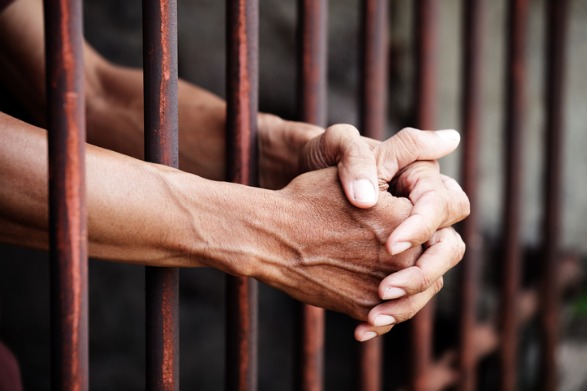Ursla Thornton grew up searching for a sense of belonging. At 10-years-old, her father was murdered. Her mother wasn’t often present, leaving her grandmother to raise Thornton along with her 15 children. Thornton felt angry, insecure, and abandoned. In search of a family, she got involved with a gang at a young age. Then at 18, she got pregnant with a daughter and went on to have two sons. On Feb. 14, 2003, her life came to a crumbling halt when she was sentenced to prison for selling drugs.
Thornton’s biological family and her gang family both taught her to never trust the police. She never questioned that advice. “The police was not our friends,” she told IWF. But today, in wake of a national anti-police movement, Thornton says the opposite.
“I just feel bad for what’s going on today,” she said. “They’re not bad people. They’re just people. And they have to do a job.”

On Dec. 5, 2008, Thornton’s son Douglas was murdered. He was 22. Her younger son, 16-year-old Tre, was close enough to the scene to hear the gunshots. Four years later, Tre saw one of the suspects who played a part in his brother’s murder and set out for revenge. After shooting the man, Tre fled, triggering a massive police chase. After escaping authorities, he landed in his apartment surrounded by law enforcement and called his mom.
“I told him to get dressed. And I told him to get on his knees and repent. You get on your knees right now,” Thornton described for IWF.
Tre was considered armed and dangerous, so Thornton knew that even if he surrendered, there was a chance he wouldn’t make it out alive. Going against every preconceived notion she had about the cops, Thornton called the detective who had worked on her son’s murder case and begged for his help.
“I told Detective Williams, Tre is in trouble and we need you,” she said. “I said, if you have any favors with the San Bernardino police, I need you to call that favor in right now. I said, it’s bad. I said, he’s considered armed and dangerous.”
“I was mad at those people,” she said. “But then the truth set in, I’m the one that’s been doing illegal activities breaking the law.”
The detective told Thornton to have her son surrender.
“I was told not to talk to the police. I was told not to trust the police,” Thornton said. “I had to think about if he’s telling me the right thing.”
Thornton is glad that she listened. Although he was sentenced to prison and is still there today, her son made it out alive.
As part of her own recovery, Thornton enrolled in Hope for Prisoners, an inmate re-entry program in Las Vegas that helps formerly incarcerated women and men who’ve served their sentences recover and find jobs.
It provides counseling, mentorships, jobs training, career opportunities, and more. As part of the program, Hope for Prisoners formed a partnership with the Las Vegas Police Department. The partnership encourages police officers to engage with and mentor former inmates. Today, it involves more than 60 members of the department.
The partnership gave law enforcement the opportunity to learn more about Thornton’s unstable family life and sense of abandonment that contributed to her own bad decisions and ultimate arrest, and also contributed to the course taken by her son. It also allowed Thornton to hear from police officers about why they pursued a career in law enforcement, and the risks and challenges they face in interacting with criminals and other offenders every day.
“I was mad at those people,” she said. “But then the truth set in, I’m the one that’s been doing illegal activities breaking the law.” She added, “I have not had a run in with the police in a bad way since after I stopped doing illegal things.”

Prior to her own arrest and that of her son, Thornton sided with the 19% of black Americans who say they would like the police to spend less time in their neighborhoods. But now, she identifies with the vast majority of black Americans who oppose defunding the police.
Instead of diminishing police presence in her neighborhood, Thornton would prefer to see more police, alongside more programs like Hope for Prisoners.
Thornton identifies with the vast majority of black Americans who oppose defunding the police.
In a couple years when her son Tre is set to be released from prison, he’ll move in with his father in San Bernardino, Calif. There, Thornton said with regret, “they don’t have programs like that.”
Hope for Prisoners’ doesn’t only help former inmates become productive, contributing members of society—it also helps to heal community relationships with police. Thornton fears that without similar efforts across the country, anti-police sentiments will persist.
“When people come home from prison … they need programs like it,” she said. “Because if not, people are going to constantly feel the way they feel about defunding the police.”
And defunding the police, she fears, will only make the problem worse.

